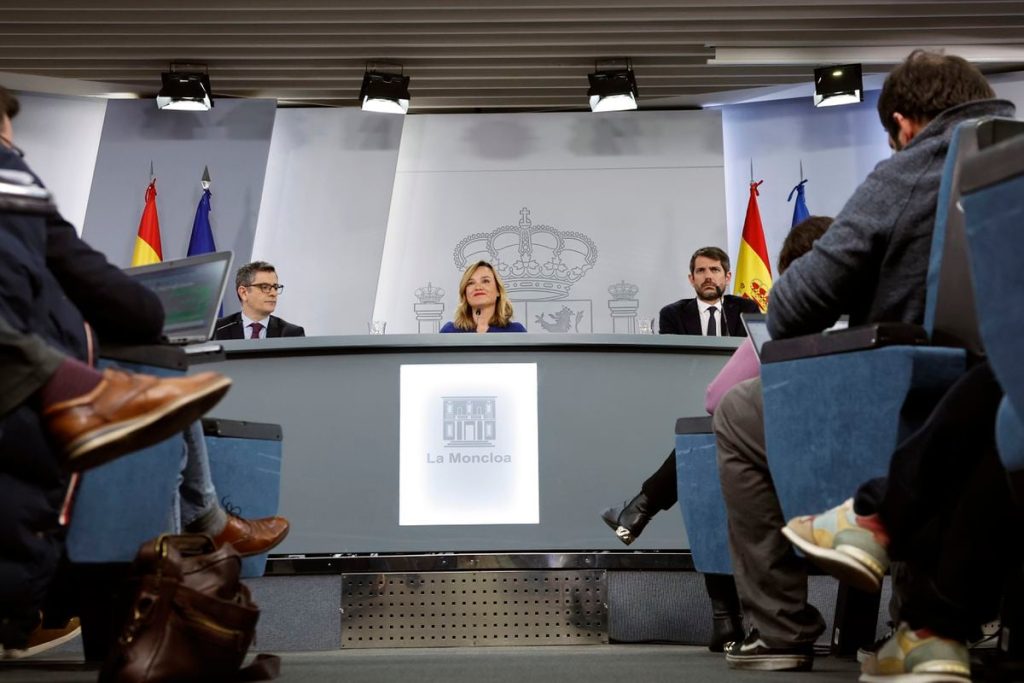The future of Catalonia does not lie in independence or unilateral actions such as a self-determination referendum. The amnesty law, which still has two more months of processing and has caused severe damage to the government, marks the end of the Catalan independence movement known as the “procés”. The government of Pedro Sánchez aimed to resolve the territorial crisis in Catalonia by focusing on self-government and improving public services, which the Catalan government neglected during the peak of the independence movement. Calls for coexistence and dialogue have been constant from the government, even before approving the pardons for the jailed leaders of the independence movement. The recent decision to challenge a popular legislative initiative in the Catalan Parliament, which sought to declare independence unilaterally, is a clear message from the government that it will not tolerate actions that violate the Constitution, especially with important elections approaching.
The government’s decision to challenge the legislative initiative has symbolic significance, as it automatically suspends the proposal and prevents further progress on unilateral independence efforts within the Catalan institutions. The aim is to prevent divisive laws that could fracture society and create tension. The response from the Catalan government has been strong, reflecting the maximalist positions of the main Catalan pro-independence parties, ERC and Junts, as they gear up for the upcoming electoral campaign. The focus is now on how the independentist parties will fare in the upcoming elections, with the PSC expected to win. The outcome will determine which party secures the support of the independentist voters and thus potentially shape the governance of Catalonia and Spain.
The Spanish government rejects the idea of holding a referendum on self-determination, emphasizing the need for dialogue and unity over divisive actions. The Minister of Presidency, Félix Bolaños, highlighted the government’s commitment to upholding the Constitution and protecting the institutions of Catalonia, its autonomy, and the principle of dialogue. The criticism from the opposition parties, such as the PP, reflects their concerns about the government’s handling of the Catalan issue and the ongoing tensions over the renewal of the General Council of the Judiciary. The delay in appointing new judges to the Council adds to the complexity of the political situation.
The stalemate over the General Council of the Judiciary continues to be a point of contention between the PSOE and the PP, with differing views on the appointment process for new judges. The Spanish government has expressed readiness to work with the European Commission to address the issue, while the PP insists on direct judicial selection without parliamentary intervention. The delay in the Council’s renewal is affecting the normal functioning of the judicial system, highlighting the urgent need for a resolution. Despite the challenges, both parties indicate a willingness to negotiate and find a solution to the issue, emphasizing the importance of trust and agreement in the process.
In conclusion, the current situation in Catalonia reflects the ongoing tensions between the central government and the regional authorities, as well as the challenges facing the Spanish political system as a whole. The upcoming elections in Catalonia will be crucial in determining the future direction of the region and its relationship with the rest of Spain. The government’s decision to challenge unilateral independence actions underscores its commitment to upholding the rule of law and the constitutional principles of unity and dialogue. Moving forward, finding common ground and fostering cooperation between different political forces will be essential in addressing the complex issues at hand and ensuring stability and progress in Catalonia and Spain.


